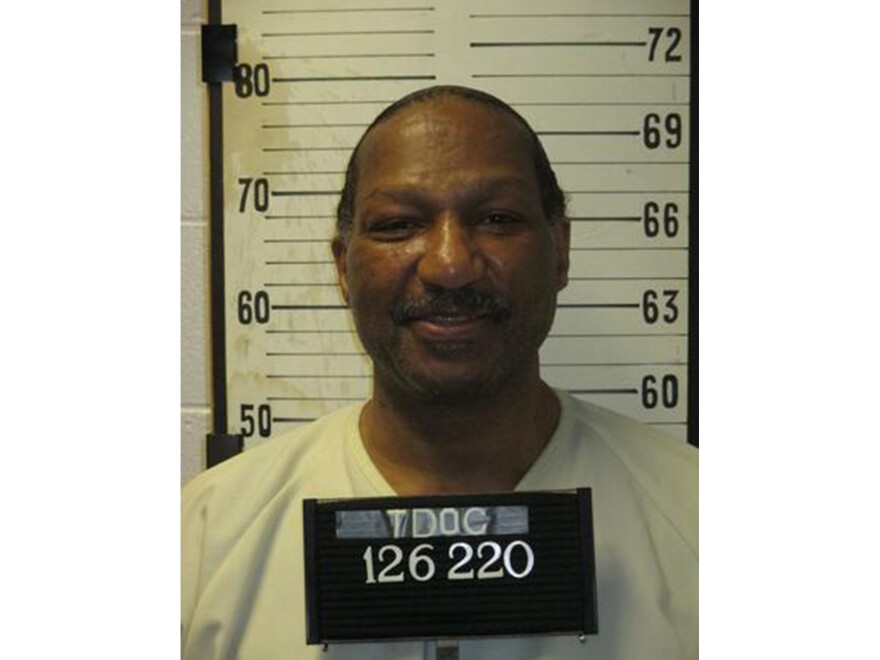Tennessee’s Nashville. Experts predict that Tuesday’s execution in Tennessee will be the first time a man has been executed while carrying a functional defibrillator in his chest.
Following a legal struggle and continued doubt about whether the implanted cardioverter-defibrillator will shock Byron Black’s heart when the lethal medicine takes effect, Governor Bill Lee refused to grant a reprieve on Monday, paving the path for Black’s execution.
According to the nonprofit Death Penalty Information Center, it is not aware of any other instances where a death row inmate has made comparable allegations regarding pacemakers or defibrillators as Black did. Black’s lawyers also indicated they haven’t come across a similar instance.
Lee stated that the courts have “universally determined that it is lawful to carry out the jury’s sentence of execution given to Mr. Black for the heinous murders of Angela Clay and her daughters Lakeisha, age 6, and Latoya, age 9.”
On Monday, the U.S. Supreme Court denied Black’s appeals. Following a five-year lull due to COVID-19 and subsequently errors by state correctional authorities, the execution would be Tennessee’s second since May.
In the United States, court-ordered executions have claimed the lives of 27 individuals so far this year, and nine more are set to be executed in seven states over the rest of 2025. This year’s executions surpass the 25 that were performed in 2018 and the previous year. Since 2015, when 28 people were executed, this is the greatest number.
Black’s condition
According to his lawyers, Black, 69, is in a wheelchair and suffers from congestive heart disease, kidney failure, dementia, and brain damage.
His implanted cardioverter-defibrillator is a tiny, battery-operated electronic device that is placed in his chest during surgery. It functions as both an emergency defibrillator and a pacemaker. According to Black’s lawyers, a doctor may ensure that it is off by placing a programming device over the implant site and sending it a deactivation command; surgery is not necessary.
A trial court judge concurred with Black’s lawyers in mid-July that officials needed to deactivate his device to prevent the possibility that it might prolong the execution and create needless anguish. However, the state Supreme Court stepped in on July 31 to reverse that ruling, claiming the other court lacked the power to impose the modification.
The state has denied that Black’s defibrillator would shock him as a result of the fatal injection. According to the state, Black wouldn’t feel shocks even if they were triggered.
Black’s lawyers have said that just because someone is rendered unconscious by the deadly chemical pentobarbital, it doesn’t mean that they aren’t aware of or incapable of feeling pain.
Black’s lawyer, Kelley Henry, warned that the execution would turn into a “grotesque spectacle.”
The case also served as a reminder that the majority of medical experts believe that taking part in executions is unethical.
Black’s case
Black was found guilty of shooting and killing his girlfriend, 29-year-old Angela Clay, and her two daughters in 1988. He shot the three at their house while he was in a jealous rage, according to the prosecution. Black was serving time for shooting Clay’s estranged husband at the time and was on work-release.
According to Linette Bell, whose sister and two nieces were murdered, “He didn’t have mercy on them, so why should we have mercy on him?” Bell recently told WKRN-TV.
Intellectual disability claim
Black’s defense team has made fruitless attempts in recent years to obtain a fresh hearing over whether he is mentally challenged and, in accordance with U.S. Supreme Court precedent, not eligible for the death penalty.
According to his lawyers, he would have been exempt under a 2021 state statute if they had postponed an earlier attempt to pursue his intellectual disability claim.
In 2022, Nashville District Attorney Glenn Funk argued that Black should have been given a hearing under that 2021 law since he is mentally challenged, but the judge rejected his argument. This is due to the 2021 law’s denial of a hearing to death row inmates who had previously submitted a similar request and had their case decided “on the merits.”
Funk’s attempt was based on the opinions of a state expert in 2004, who concluded that Black did not fit the criteria for what was then known as “mental retardation.” However, she came to the conclusion that Black satisfied the requirements for an intellectual impairment diagnosis under the new statute.
Black also requested that the courts rule that he is not competent to be put to death.
Copyright 2025 NPR






